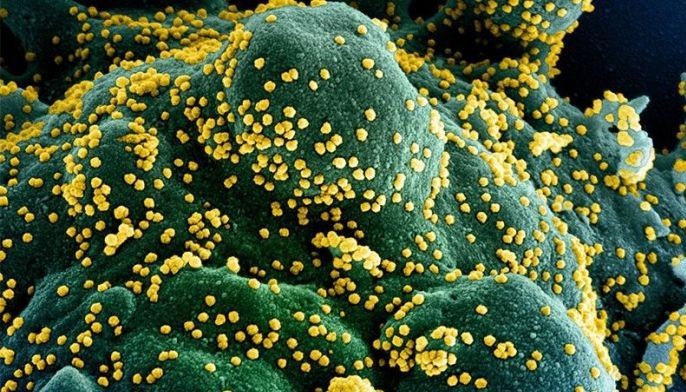MANILA, Philippines (Updated 11:37 a.m.) — A mutation of the novel coronavirus believed to be more infectious than the original variant has been detected in the Philippines, genomic researchers said.
The new mutation of SARS-CoV-2, the virus that causes COVID-19, has been reported to have become the dominant coronavirus strain circulating around the world. Researchers called the new strain G614.
Related Stories
When the outbreak began in the country last March, the original D614 genotype showed up in the positive samples collected by the Philippine Genome Center (PGC). But in a new study, genomic researchers detected both the D614 and the G614.
“We now report the detection of the D614 variant among nine randomly selected COVID-19 positive samples collected in Quezon City in July. In the month of June, both the D614 as well as the G614 have been detected in a small sample of positive cases,” PGC said in an August 13 bulletin.
“Although this information confirms the presence of G614 in the Philippines, we note that all the samples tested were from Quezon City and may not represent the mutational landscape for the whole country,” it added.
Last month, researchers from the Los Alamos National Laboratory in New Mexico and Duke University in North Carolina published a study that a specific change in SARS-CoV-2 virus genome is more infectious in cell culture. The team analyzed the data of 999 patients hospitalized with COVID-19 in the United Kingdom and observed that those infected with G614 had more viral particles in them.
They, however, did not find evidence of G614 impact on disease severity. In other words, it was not significantly associated with hospitalization status.
“There is still no definitive evidence showing that carriers of the G614 variant are actually more transmissible than those with D614, and the mutation does not appear to substantially affect clinical outcomes as well,” PGC said.
The genome center stressed the importance of continuously monitoring G614 to help formulate containment, diagnostic and therapeutic strategies.
“Itong sinasabi nila na D614G mutation may higher possibility na mas transmissible siya, mas higher ang level niya na makaka-transmit sya sa iba or infectious. Pero wala pa rin tayong solid evidence to say na ‘yan talaga ay mangyayari,” Health Undersecretary Maria Rosario Vergeire said in a media forum Monday.
(They say D614G mutation has higher possibility that it is transmissible, it has higher level that it can transmit to others or infectious. But we still don’t have solid evidence to say that will happen.)
She also said that the PGC has been authorized by the DOH to continue the study to gather more information about the virus.
The novel coronavirus has so far infected 161,253 people in the country despite imposing one of the longest and strictest lockdowns. Of the figure, 112,586 have recovered and 2,665 have died.


